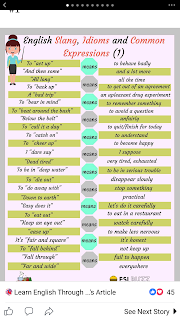4 English Conversation Tricks to Help You Connect with Business Clients
1. Make a Connection with Small Talk
There are a few main ways to connect with people while using small talk:
- Use common experiences.
- “Do you have any vacations planned for the summer?” “Wow. That sounds like it will be great.”
- “If you get a chance, you should definitely try the deli around the corner.”
- “Which hotel are you staying at?” “A few other clients have stayed there. They said it was quite nice.”
- Talk about the person’s home town or where their business is located now.
- “I went to Chicago a few years ago. I liked it a lot.”
- “I saw your headquarters are located in Dallas, Texas. My sister lives in Dallas.”
- “Oh, you’re from Colorado? I hear there are some great places to ski there.”
- Mention college or school.
- “So you’re a University of Michigan alumna? Did you see that football game last night?”
- “You went to the University of Texas? I went to Rice University in Houston, but we used to always drive over to Austin for the weekends.”
- Discuss common interests or likes.
- “You like sushi? I love it too. In fact, there’s a great sushi restaurant downtown.”
- “Are you a sports fan?”
2. Stay Engaged in the Conversation
Whenever you are talking with someone, you should show interest in the conversation. This is true for small talk and any other business discussion. If you are not interested, the other person will not be interested either. Here are some tips to help you be more engaged in the conversation:
- Don’t just talk. Ask questions and listen.
- “Where did you go to university?”
- “Any weekend plans?”
- “Do you know any good restaurants around here?”
- Pay attention to the person with whom you are talking.
- Do not look at your phone or watch.
- Make eye contact whenever possible.
- Nod your head occasionally to show interest.
- Smile when they talk about things they like.
- Notice small things that could be conversation starters.
- If you see a person’s name badge says he is from Los Angeles: “Los Angeles—that’s a great city!”
- If a person has a photograph of her family on a cruise: “Which cruise was that?”
- If her phone’s ring tone is a familiar song: “Is that Coldplay? I saw them in concert a few years back. What a show!”
- Do some research about the person to know more about him.
- Use some of the basic information you find in conversation.
- Learn which topics they do not like, so you can avoid them.
The last point can really help guide your conversation and get to know your client better. If you check social media and find out that your client is a vegetarian, then you know they will not care about the best burger you have ever eaten (unless it is a tofu burger, of course!).
Likewise, if you learn that your client traveled to England last summer, then you might have a conversation like this:
“I’m planning on taking the family to England. Have you ever been there?”
“Yes, in fact I went last summer.”
“Oh really? Is there anything I should definitely make sure to see?”
“Personally, I’m not much of a city person, so London wasn’t for me. But Devon was extraordinary.”
“I’ll definitely try to check it out. Thanks for the tip.”
3. Avoid Difficult Topics While Making Small Talk
Small talk is meant to be light and easy.
The main rule of small talk is to avoid anything that can inflame negative feelings. It is best to avoid topics that could potentially hurt a person’s feelings or challenge their opinions.
When making small talk, you should avoid talking about:
- Politics
- Religion
- Morals
- Current affairs (news) which demand an opinion
- A person’s appearance
- Anything too personal
- Anything that someone might have an intense opinion about
The last thing you want to do is offend a client.
When in doubt, just ask yourself, “Is there a chance this could be considered an offensive question or comment?”
If the answer is yes, then skip it!
4. Pay Attention to How People Feel During Small Talk
Sometimes small talk is not appropriate or welcomed by the other person.
When you are making small talk with a business client or anyone else, you should always be aware of how the conversation is going. If the conversation seems forced or the other person looks uncomfortable, then a shift in topic—or even silence—may be the solution.
These are some things to keep in mind when trying to understand your situation during small talk. A red flag is a warning sign that you should pay attention to. If you see one of these red flags, then you should relax, change the topic or possibly stop talking.
- Take note of the other person’s body language.
Red Flags: Crossed arms, a serious look or closed off body language are all red flags showing that the person is uncomfortable with small talk.
- Do not insist on making small talk if the other person is not interested.
Red Flags: Looking at his/her phone or appearing to not hear what you are saying
- Notice if the conversation seems forced, or if the other person does not want to talk.
Red Flags: One-word answers, not reciprocating questions
- Notice if things seem tense.
Red Flags: Strongly voicing an opinion, raising eyebrows and any kind of look of anger or irritation.
This may seem like a lot to remember, but do not worry. You will be fine!
Small talk should be easy and enjoyable for everyone involved.
Keep it simple and try not to overthink it.






